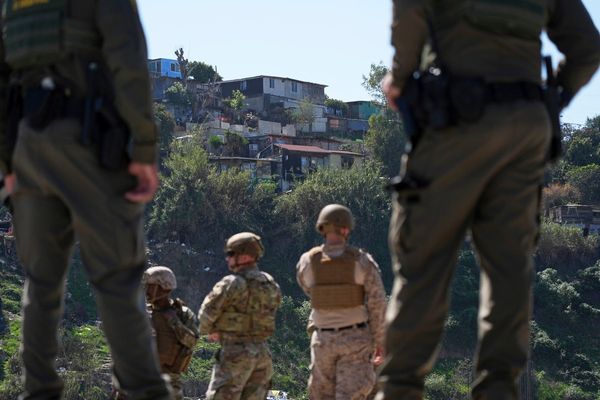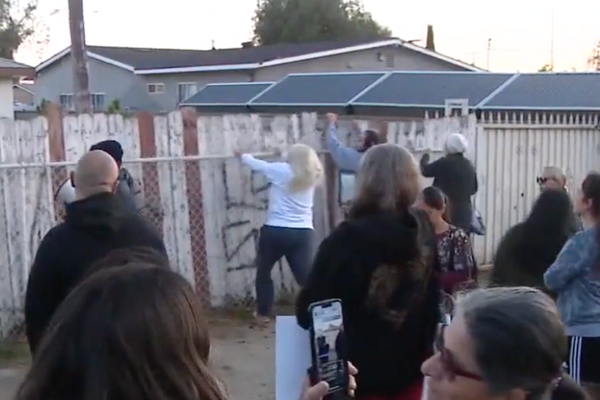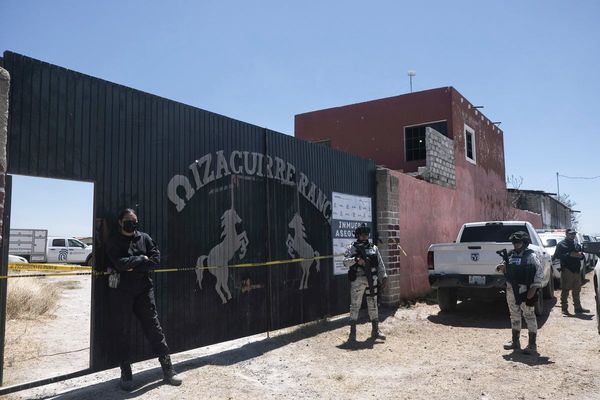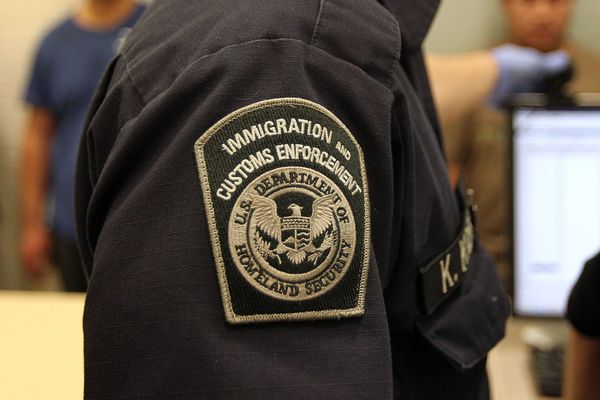
Sam Bankman-Fried was not surprised to discover a huge $8bn shortfall in the days before the collapse of FTX, his now bankrupt cryptocurrency exchange, according to testimony from his former business partner.
The testimony came from Gary Wang, the co-founder of FTX, during his second day on the witness stand in Bankman-Fried’s fraud trial. Bankman-Fried is facing seven counts of conspiracy and fraud over the dramatic collapse of FTX and its associated hedge fund, Alameda Research.
Wang, who started Alameda with Bankman-Fried in 2017 and co-founded FTX in 2019, told a New York City jury that Bankman-Fried was unfazed when Wang ran the numbers and uncovered the startling deficit.
Bankman-Fried said “that sounds correct” and “had a neutral demeanor”, Wang testified in Manhattan federal court on Friday, the fourth day of the trial.
Wang was FTX’s chief technology officer and is part of an “inner circle” of FTX executives who have agreed to testify against Bankman-Fried in exchange for leniency in their own criminal cases. He is expected to finish his testimony on Tuesday. Wang has pleaded guilty to wire, securities and commodities fraud as part of his agreement with prosecutors.
Caroline Ellison, the former CEO of Alameda, Bankman-Fried’s ex-girlfriend and a star witness for the prosection, is expected take the stand on Tuesday.
Under questioning from prosecutor Nicolas Roos, Wang walked jurors through conversations among Bankman-Fried’s inner circle in early November 2022, when more and more FTX investors were withdrawing their money.
Nishad Singh, FTX’s top tech executive, knocked on Wang’s door and told him there was a large number of customer withdrawals, and asked if he could speed up the processing.
Roos asked why he wanted processing sped up.
“To make people less worried” about getting their withdrawals processed, Wang said. Wang spoke to Bankman-Fried later that day, at the fallen tech titan’s apartment.
Bankman-Fried put the blame on an article that contained leaked balance sheets for FTX and Alameda, revealing that the two companies were on shaky ground due to being heavily bolstered by FTT, the exchange’s own cryptocurrency.
Wang said that he calculated customer balances – effectively, how much FTX actually had compared to what customers put in. Wang said he was “surprised”, because there seemed to be enough to cover non-Alameda FTX customers’ deposits.
Bankman-Fried then threw a curveball.
“He asked me if I was including the special Korean accounts,” Wang said. “He said, ‘Are you including our Korean friend?’”
“I asked him what he was talking about.”
He was sent an ID associated with an email thatWang told jurors he had never heard of.
When he re-ran the numbers considering this account, Wang said, it turned out that FTX balance was, in fact, “negative 8bn”. This suggested that the money Alameda owed FTX had just been moved into another account, so that the hedge fund could save money on interest payments to its lenders.
Roos then asked Wang about a series of tweets that Bankman-Fried fired off hours after their conversation, in which his ex-boss said: “FTX is fine. Assets are fine.”
Were they fine? Roos asked.
“No, FTX was not fine,” Wang said.

Wang also testified that Bankman-Fried duped FTX customers into thinking their money was protected by an internal insurance fund, when in fact there was not enough money in the fund to cover their deposits.
Wang was also questioned about an internal spreadsheet detailing FTX’s financials. Near an entry about billions of FTX funds that were entangled in the ailing Alameda, a note read: “Oops, this sounds like not a thing we should be counting?”
Wang, the fourth witness called by the prosecution, took the stand late on Thursday and quickly implicated Bankman-Fried, identifying him as one of the people with whom he committed financial crimes.
In early questioning on Thursday, Roos asked Wang directly if he committed financial crimes while at FTX.
“Yes,” Wang replied, explaining that these crimes included wire fraud.
“Who are the main people you committed these crimes with?”
“Sam Bankman-Fried, Nishad Singh and Caroline Ellison,” Wang answered.
FTX filed for bankruptcy on 11 November. Wang testified that, within hours of FTX filing for bankruptcy, Bankman-Fried had ordered him to send the bulk of FTX’s remaining assets to the securities regulators in the Bahamas instead of to the US authorities handling the bankruptcy.
Bankman-Fried said the Bahamian regulators “seemed more friendly to him, and they seemed more likely to let him stay in control of the company compared to the US,” Wang testified.
Bankman-Fried has pleaded not guilty. His team has repeatedly said that Bankman-Fried was trying to do the right thing but couldn’t quite keep his head above water.
During the defense opening, lawyer Mark Cohen said: “Sam didn’t defraud anyone. Sam didn’t intend to defraud anyone. Sam acted in good faith.
“There was no theft.”
The Associated Press contributed reporting







